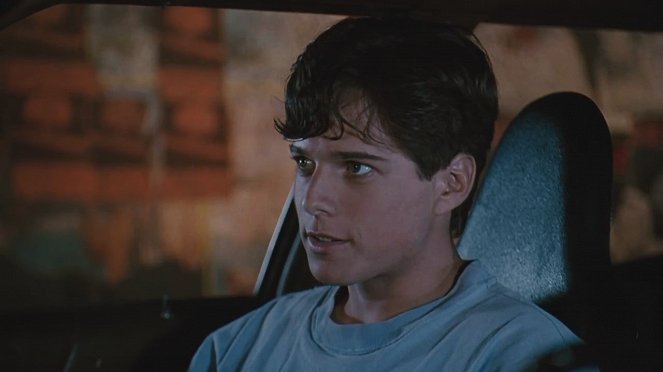Regie:
James YukichKamera:
Gary B. KibbeMusik:
Jay FergusonBesetzung:
Robert Patrick, Mark Dacascos, Scott Wolf, Julia Nickson, Alyssa Milano, John Asher, Michael Berryman, Andy Dick, Mark Brazill, Vincent Klyn, Roger Yuan (mehr)Streaming (1)
Inhalte(1)
Wir schreiben das Jahr 2007. Eine durch ein gigantisches Erdbeben ausgelöste Flutwelle hat große Teile von New Angeles unter sich begraben. Wo einst der Hollywood Boulevard prangte, ist jetzt nur noch ein breiter Fluss. Gangs und Banden regieren in der verwüsteten Stadt. In diesem Strudel aus Gewalt und Verbrechen versuchen die Brüder Jimmy und Billy Lee zu überleben. Die beiden wachsen seit dem Tod ihrer Eltern bei einer Pflegemutter auf. Diese schenkt ihnen eines Tages die Hälfte eines Talismans und an diesem Tag verändert sich ihr Leben für immer. Denn die andere Hälfte des Talismans gehört dem hinterhältigen Gangboss Koga Shuko. Und dieser setzt alles daran, beide Hälften zu vereinen – denn dem Besitzer soll grenzenlose Macht zuteil werden. (Verleiher-Text)
(mehr)Kritiken (1)
Despite popular prejudice, the 1980s were not the worst era in terms of fashion, style, taste and pop culture. Actually, all of the evil of the ’80s culminated in the first half of the following decade and Double Dragon ranks among the showpieces of that era characterised by hypertrophied campiness. At the same time, the early nineties was the opening chapter in Hollywood’s attempts to systematically adapt pop-culture brands such as comic books and video games. Unlike the current meticulously reverent flattering of fanboys with knowing sophistication and impassioned seriousness, the adaptations back then were rather loosely conceived and wagered on the contemporary style of films for youths instead of taking the source works into account. This tendency apparently arose from 1980s animated television series for older children, such as Teenage Mutant Ninja Turtles, BraveStarr, COPS, Bionic Six, MASK and many others, or perhaps from early 1990s juggernauts such as Street Sharks and Biker Mice from Mars. Franchise movies derived from these shows in the1990s, such as the Teenage Mutant Ninja Turtles trilogy and a brief series of video-game adaptations comprising Super Mario Bros, Double Dragon and Street Fighter took on a colourful palette, exaggerated expression of the characters and a blend of comic-book fantasy and childish irreverence with a pastiche of interconnectedness with the fashion and pop-culture trends of the day. Like the other two video-game movies mentioned above, Double Dragon is fascinating primarily as an adaptation with a completely original narrative. In fact, all that it has in common with the video game itself is the title and a handful of peripheral elements such as punks, street gangs and two brothers as the main characters. On the other hand, the original video game didn’t have a story. The final form of the movie’s world, characters and story, created solely by the screenwriters, is thus all the more insane. Furthermore, when we take into account that the filmmakers simply needed to make something bearing the same name as a successful video game, the effort to create an expansive fictional world with its own mythology and diverse castes is even more surprising. The result is a phantasmagorical mishmash in which every sequence abounds with colour and affected theatricality, while at the same time possessing opulent sets and countless crazy details that form the atmosphere of the movie’s futuristic, post-apocalyptic world. And that’s not even to mention the magnificent cast, which perhaps couldn’t be any more ’90s. One could assume that the filmmakers initiated the project in light of the announcement of the similarly conceived first video-game movie, namely Super Mario Bros., which promised to be a hit of the new generation that would kick off a gold rush of video-game adaptations. However, it was a colossal flop and Double Dragon met the same fate. Of the creatively boisterous video-game movies, Street Fighter was the best, though a significant part of its box-office success was due to the casting of Jean Claude Van Damme. Conversely, the tremendous receipts brought in by the hopelessly unimaginative Mortal Kombat, which replace the pastiche, exaggeration and childishness of the first three video-game movies with pathos and earnestness, determined the direction that Hollywood would take. How would today’s pop culture look if fanboys hadn’t become arbiters of taste and the raucous creativity in the style of Super Mario Bros. and Double Dragon could have continued, finally free of the anti-aesthetic dead weight of the ’90s?
()
(weniger)
(mehr)

